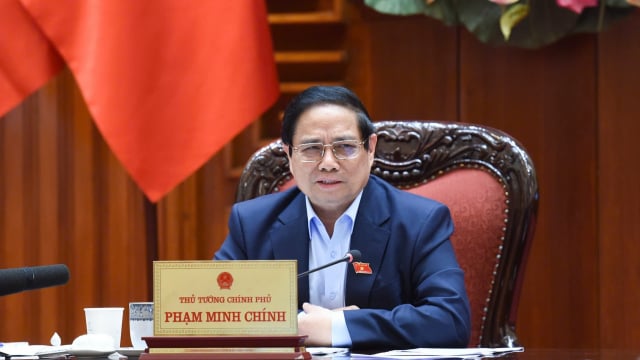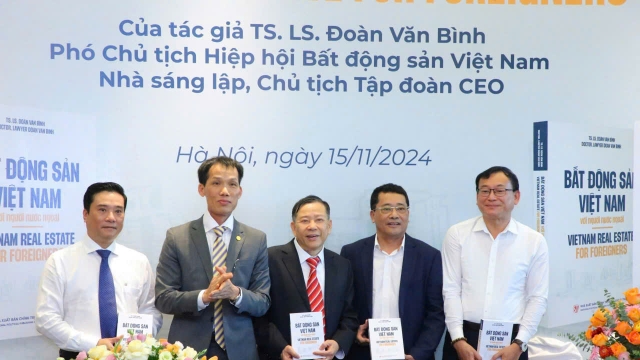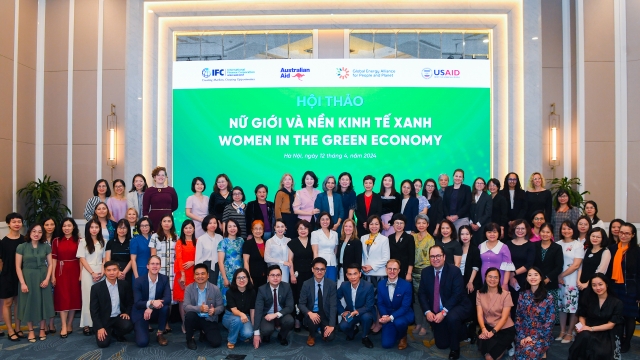National Focus
Joining global supply chain still challenges Vietnameses firms
Lack of management capacity from broad strategies to specific plans is the main factor that has hindered Vietnamese enterprises in joining the global supply chain, according to international experts.

Experts in the International Finance Corporation (IFC) said that in general, Vietnamese businesses had a lot of favorable conditions to join the global supply chain, especially regarding modern technology. However, Vietnamese businesses need to focus on development strategies and a leadership vision.
IFC, in coordination with the Vietnam Industry Agency, launched the Vietnam supplier development programme (SDP) in May 2018. This effort aims at supporting local suppliers throughout the value chain of their target industries as well as improving their efficiency to meet the requirements of multinational enterprises. The qualified suppliers will then be connected to the enterprises for an opportunity to become their partners.
Of the 45 enterprises in the SDP, most of which were part of the supporting industry, only 20 per cent had good competitiveness and preparedness to join the global supply chain. The remaining capacity needed to have their capacity strengthened.
For example, Honda Vietnam currently accounts for 60 per cent of motorbikes in Vietnam, but only 23 of Honda's suppliers are Vietnamese enterprises. This figure is attributed to the failure of local enterprises to satisfy Honda’s standards of technology, timing, and human resources.
In fact, Mike Dickinson, senior advisor to the SDP, stated that many Vietnamese businesses had a machinery and technology system that met the needs of Japanese and South Korean companies, but they could not make a breakthrough due to the lack of management capacity.
"Sometimes, enterprise leaders not only do not understand the work plan thoroughly but also fail to offer a clear strategy for the staff while setting up unrealistic expectations," another SDP senior advisor said.
Also, some managers do not have enough skills and a sensible approach to carry out projects with foreign partners. Those who are assigned to the project do not have management skills. Many companies do not track their performance.
Based on the results of the assessment, SDP experts developed a training programme for 45 participants. This programme will be implemented in three months, starting in October 2018.
By the beginning of 2019, those 45 businesses are undergoing a second assessment process. After the result is out, 25 enterprises will be selected to get long-term support from specialised advisors depending on their own characteristics. Advisory groups play an important role in linking local suppliers with FDI enterprises.
How can Vietnam's auto industry participate in the global supply chain?
Resolution 68: A turning point in Vietnam's private sector policy
As Vietnam sets its sights on becoming a high-income country by 2045, Resolution 68 lays a crucial foundation. But turning vision into reality requires not only good policy - but also unwavering execution, mutual trust and national unity.
Vietnam plans upgrade of Gia Binh airport to dual-use international hub
Vietnam plans to upgrade Gia Binh Airport in Bac Ninh province into a dual-use international airport to support both military and civilian operations, the government said on Friday.
Lives under the scorching sun: Outdoor workers racing against climate change
Under unforgiving conditions, the outdoor workers - the backbone of urban economies - endure the harshest impacts of climate change while remaining overlooked by social safety nets. Their resilience and struggles highlight the urgent need for better protection in the face of rising temperatures and precarious livelihoods.
CEO Group chairman unveils guide to Vietnam real estate for foreigners
Doan Van Binh, Chairman of CEO Group and Vice President of the Vietnam National Real Estate Association, introduced his latest book, “Vietnam Real Estate for Foreigners,” at a launch event in Hanoi on Friday.
Women leading the charge in Vietnam's green transition
Acting for increased women’s participation and leadership in climate action, Vietnam can accelerate a transition that is more inclusive, just, and impactful.
Steam for girls: A journey of passionate and creative girls
The "Steam for girls 2024" competition provides a creative platform for Steam and an opportunity for students to connect with peers from various regions within Vietnam and internationally.









































